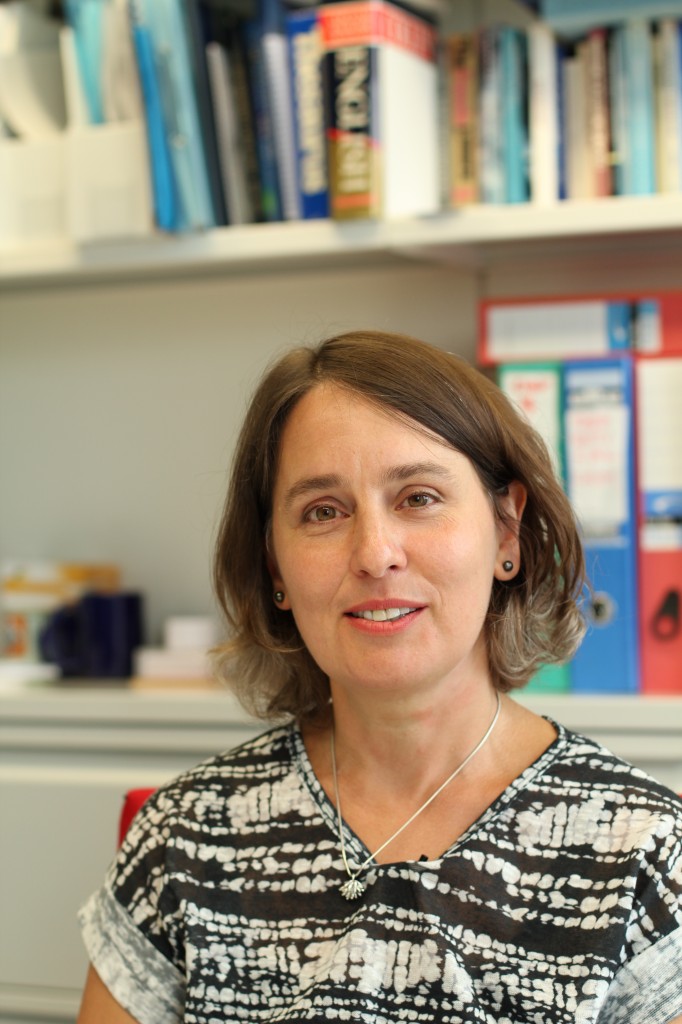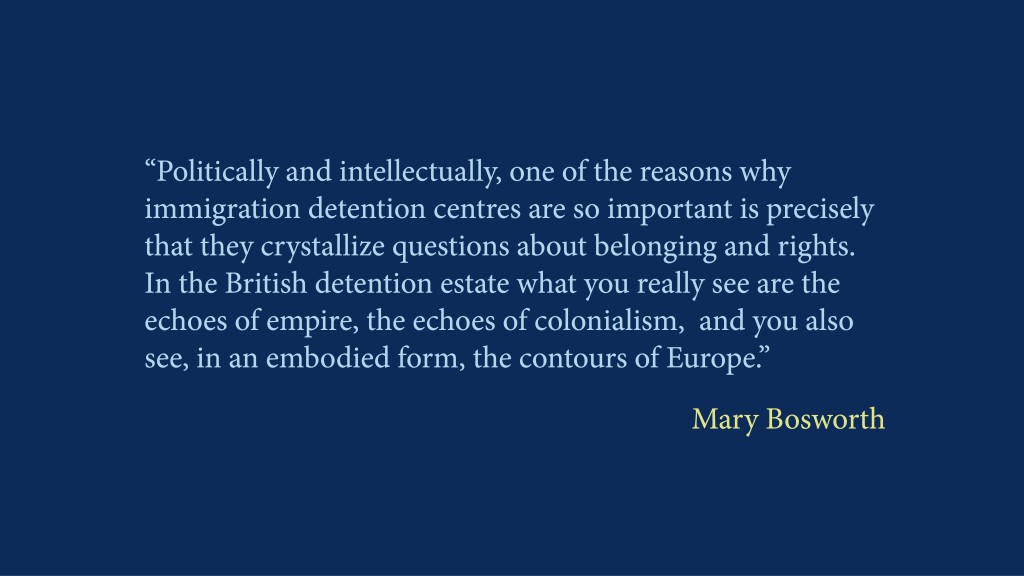 “Following 9/11, the US and then the UK decided to introduce new pieces of legislation which were ostensibly aimed – at least to start with – against terrorism and concerned security. But they rapidly bled into other fields, in particular into the area of immigration. So we saw throughout the first decade of the 21st century a series of new pieces of legislation which restricted access of asylum seekers and changed the way they were handled in the UK, and also restricted access of economic migrants and how they were handled. And in order to enact those changes of legislation, the UK government began to expand its immigration detention estate. And that was the point at which I realized there was a big gap in the academic literature on these institutions and that led me to this project…”
“Following 9/11, the US and then the UK decided to introduce new pieces of legislation which were ostensibly aimed – at least to start with – against terrorism and concerned security. But they rapidly bled into other fields, in particular into the area of immigration. So we saw throughout the first decade of the 21st century a series of new pieces of legislation which restricted access of asylum seekers and changed the way they were handled in the UK, and also restricted access of economic migrants and how they were handled. And in order to enact those changes of legislation, the UK government began to expand its immigration detention estate. And that was the point at which I realized there was a big gap in the academic literature on these institutions and that led me to this project…”
This is the first in a new series of podcasts commissioned by OUP’s law publishing department. My guest is Mary Bosworth, reader in criminology at the university of Oxford and concurrently professor of criminology at Monash University in Australia. Mary has had extensive and unprecedented access to the UK’s immigration detention centres – now renamed immigration removal centres – where she conducted hundreds of face-to-face interviews with detainees and staff. In the post-9/11 world of heightened anxiety and tougher regulation, she’s been pursuing the question – what are these centres for? She’s also tried to capture what life is like for the people who pass through them, to help ground the debate about them in reality rather than polarized political stances. The results of her research are contained in her new book Inside Immigration Detention.

